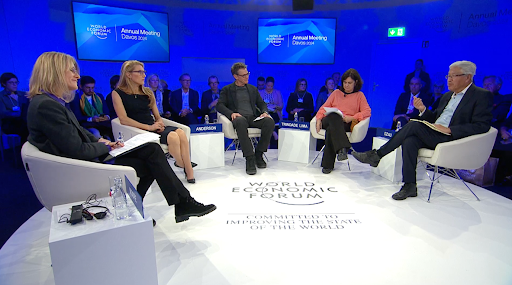The health strategist
institute, portal & consulting
for workforce health & economic prosperity
Joaquim Cardoso MSc.
Servant Leader, Chief Research & Strategy Officer (CRSO),
Editor in Chief and Senior Advisor
January 18, 2024
This executive summary is based on the article “Building Climate-Resilient Health Systems and Crops”, published by The Health Policy Watch and written by Deesha Shetty, on January 17, 2024.
What is the message?
The progress made towards Sustainable Development Goals (SDGs) is under threat due to the impacts of climate change.
Despite promises at COP28, funding gaps persist, hindering effective crisis response.
The World Health Organization’s Special Envoy for Climate Change and Health, Vanessa Kerry, highlights the urgency of addressing climate-related health challenges and calls for immediate action.

ONE PAGE SUMMARY
What are the key points?
Climate Change Impact on Health: The global temperature has risen by 1.4°C above pre-industrial levels, with projections indicating a path towards a 2.4°C increase. Vanessa Kerry emphasizes that climate change is reversing progress, leading to cholera outbreaks, school closures, and the resurgence of malaria in previously eradicated areas.
Funding Challenges: Despite a $1 billion pledge for climate and health, Kerry notes that $800 million was pre-committed and not new money. Funding gaps persist, and urgent steps are needed to mobilize resources from the significant wealth represented at forums like Davos.
Climate-Resilient Health Systems: Brazil’s Health Minister, Nisia Trindade Lima, outlines the climate-related impacts on health in her country, including rising food insecurity and infectious diseases. To build resilient health systems, Lima emphasizes the need for cross-sector collaboration, focusing on equality, and implementing sustainable measures.
Addressing Crop Failure: Bill Anderson, CEO of Bayer AG, highlights the challenges of food insecurity due to crop failures caused by climate extremes. Bayer is working on innovative solutions, including developing shorter-stature corn resistant to extreme weather events and reducing methane production from rice through direct-seeded rice.
Health Sector Emissions: Victor Dzau, President of the US National Academy of Medicine, acknowledges the health sector’s contribution to global carbon emissions (around 5%). To mitigate health impacts of climate change, Dzau emphasizes the need for broader actions beyond the health sector, targeting energy use and agriculture.
What are the key examples?
Vanessa Kerry highlights the reversal of progress in countries like Zambia, where cholera outbreaks and malaria resurgence are linked to climate change.
Bayer’s initiatives include developing short-stature corn and reducing methane production from rice to address food insecurity caused by climate-related crop failures.
Conclusion
The urgent need for climate-resilient health systems and sustainable agriculture is underscored.
The article calls for immediate global action to address funding gaps, mobilize resources, and implement cross-sector measures.
As the health sector grapples with its carbon footprint, collaboration and innovative solutions are deemed essential to mitigate climate-related health challenges.
The examples presented showcase the interconnectedness of climate, health, and agriculture, emphasizing the importance of a holistic and collaborative approach.
To read the complete article, click here.











